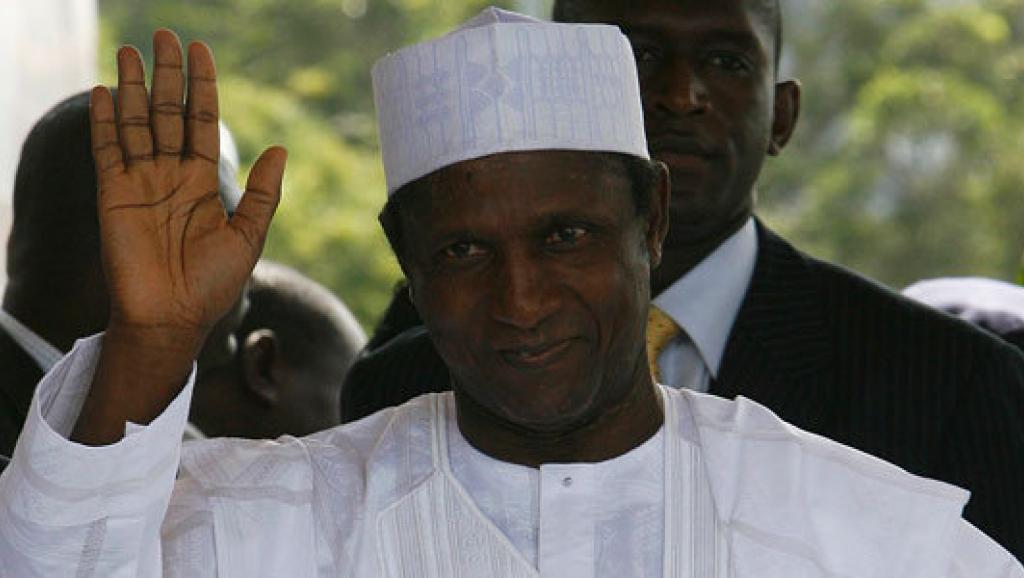10 things Yar’adua will be remembered for
It is 10 years since President Umaru Musa Yar’ Adua died while in power. Despite spending just about three years in office, his government pursued ambitious projects and programmes, many of which have been completed. Below are 10 things the late president will be remembered for: 1. Return of Lagos local government funds The late […]

It is 10 years since President Umaru Musa Yar’ Adua died while in power.
Despite spending just about three years in office, his government pursued ambitious projects and programmes, many of which have been completed.
Below are 10 things the late president will be remembered for:
1. Return of Lagos local government funds
The late President Yar’adua will always be remembered for releasing the local government statutory allocations of Lagos State seized by the administration of former President Olusegun Obasanjo, which opposed the creation of additional Local Council Development Authority (LCDA).
The government of Obasanjo had refused to release the funds despite court judgement in favour of Lagos State.
2. Creation of Amnesty and Rehabilitation Programme
Yar’adua stabilised the nation and ensured the return of peace in the Niger Delta by granting pardon to former agitators through the establishment of Amnesty and Rehabilitation Programme.
The militants used the window of peace created by Yar’adua to surrender their arms.
This single action saw an unprecedented improvement in the performance of Nigeria’s oil and gas industry.
The history of the creation of the Ministry of Niger Delta will not be complete without mentioning the name of the late Yar’adua whose administration made the feat possible.
3. Declaration of Asset
On 28 June 2007, Yar’Adua publicly revealed his declaration of assets from May (becoming the first Nigerian president to do so), according to which he had ₦856,452,892 (US$5.8 million) in assets, ₦19 million ($0.1 million) of which belonged to his wife.
10 years after: Jonathan mourns ‘selfless, modest’ Yar’Adua
He also had ₦88,793,269.77 ($0.5 million) in liabilities.
This disclosure, which fulfilled a pre-election promise he made, was intended to set an example for other Nigerian politicians and discourage corruption
4. The triumph of Rule of Law
The late Yar’adua was nicknamed Mr Rule of Law because of his favourable disposition to the judiciary.
Under his administration, the ruling People’s Democratic Party (PDP) lost states like Edo, Ondo, and Osun in court.
5. Smooth Executive-Legislative relationship
The late Yar’adua will also be remembered as an advocate and proponent of the separation of power.
This was the reason why former Vice President Atiku Abubakar once described late President Yar’adua as a decent politician whose administration did not suffer from executive-legislative tension in the Fourth Republic.
6. Justice Mohammed Lawal Uwais Electoral Reforms Committee
His administration will also be remembered for constituting the Justice Mohammed Lawal Uwais-led Electoral Reforms Committee which made far-reaching recommendations that will aid the country’s electoral process if implemented.
7. Seven-Point-Agenda
On August 1, 2007, the Yar’adua regime announced a “Seven Point Agenda”, which includes power and energy; food security; wealth creation; transport sector; land reforms; security; and education.
8. Amend PDP constitution to take monopoly of Board of Trustees (BoT) chairmanship from former Presidents.
He championed the amendment of the PDP constitution which stripped former President Obasanjo of sole chairmanship of the party’s BoT.
9. Expansion of Kubwa and Airport Expressways
The administration of the late former Governor of Katsina State mobilised funds for the expansion of Kubwa and Airport Expressways, a project which was completed under the administration of former President Good luck Jonathan.
The airport road was named Umaru Musa Yar’adua Expressway after its completion.
10. Dredging of River Niger
The ambitious project to dredge River Niger was pursued by the late Yar’adua but abandoned after his death.
River Niger is important in terms of economic activities in the North as it is the major river that links the North to the South.
